Social media has a ton of benefits.
At least if you’d trust the opinions of the crowd, since more than 2.46 billion people are using it.
It is an incredible marketing tool that has skyrocketed in popularity, but most importantly, it is a communications tool that has completely revolutionized the way we communicate, most often to the better.
But as with anything, social media comes with its own set of social media problems.
If you are a regular user of social media or perhaps someone who’s working for a social media marketing agency,chances are, you’ve faced some of them already. And if you’ve been updated with news, it’s almost impossible to have missed news about people who have gotten themselves into dangerous situations as a result of social media, and more.
While the benefits clearly seem to be outweighing the social media problems, learning what they are is always a good idea.
Because when you’re aware of what they are, you can better protect yourself from them, and use social media in a way which minimizes the number of problems you might face.
In this post, we’re sharing a complete list of all of the known social media problems. We’ll also share with you potential solutions to those problems, and how you can protect yourself from them.
Here are 34 social media problems:
1. Cyberbullying
Cyberbullying taking place on social media. It is aggressive attacks on someone with the intention of hurting them. The word cyber tells us that it takes place on the internet, including social media.
On social media, there is an immense amount of cyberbullying taking place.
In fact, a study found that 20–40% of adolescents report having been victims of cyberbullying.
Cyberbullying is not very different than bullying in real-life, the main difference is that it is taking place online. The effects, however, are reported the be quite similar, including increased anxiety, depression, and low self-esteem.
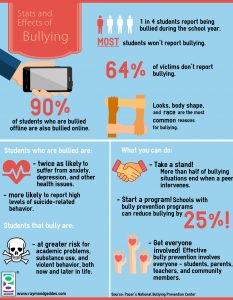
Cyberbullying has increased on social media for many reasons, and this is a major social media problem.
Important reasons for this is that you never see your victim and can be anonymous.
2. Social media Addiction
If you’ve listened to the debate of social media where they list the social media problems, addiction is often far up on that list.
It is reported that we become addicted to social media, which leads to unhealthy usage, and excessive time consumption.
It has been found that internet and social media addiction is quite similar to other addictions, and it has also been found that the consequences of it are often similar as well.
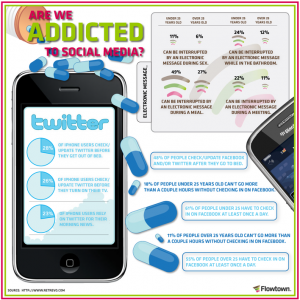
While admitting that people have a social media addiction is quite rare, the phenomenon does exist, where people can get abstinence or irritated if they don’t get to access social media.
3. Content is never deleted
Despite what you might think, no content is ever deleted and erased completely.
This means that it is crucial that you really think about what it is you are posting.
Not only is content you share on social media databases stored for a long time, but if you have shared a post and then deleted it, there’s also a risk that people have already seen it.
There have been plenty of examples the last couple of years who have been sharing inappropriate content on social media which they have then regretted afterward as it had a negative effect which they couldn’t foresee.
4. Sleep Deprivation
Another social media problem is sleep deprivation.
In fact, it is found that social media can lead to sleep deprivation, especially for teenagers.
It is not uncommon that people lie countless of hours before they go to sleep with their phone right in front of their face, scrolling social media. Not only does the fact that it is hard to put the phone down and abandon social media lead to sleep deprivation, but studies have also found that staring at a tablet or smartphone screen before bed is terrible for your sleep, which further leads to sleep deprivation.
5. Damage to company’s and employer’s public reputation
It is not unheard of that people turn to social media to complain or share their own reflections about an event which has happened at work.
This is negative in many aspects, but an important one is if you are a business owner and have employees or co-workers complaining on social media. Because if they do, it can lead to a bad reputation for both you and your company.
Many brands have realized this, and therefore, created a social media policy for its employees and co-workers.
Normally, these policies restrict employees to write or post things on social media which can have a negative effect on the brand and organization.
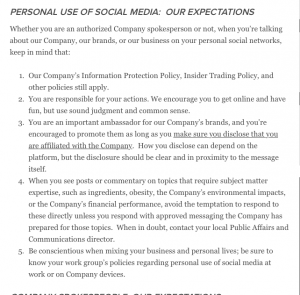
The problem is that if this happens, and you don’t have a policy, knowing what to do will be difficult. Because in fact, your employees clearly didn’t know what was ok or not ok. But when you have a policy in place, everyone knows what they can do and what they shouldn’t do on social media.
6. Digital Footprint
Something that you need to realize on social media is that you are never actually unwatched, and with every single action you take, you leave traces after you.
Your digital footprint is the traces of data you leave behind by using media and in this case social media.
Now, if you haven’t done anything, you have not a lot to be afraid of, but remember that more and more employees as looking at the digital footprint and their social media activity before they hire, and if you’ve left a digital footprint which portrays a negative image, it won’t be any good. More on that later.
Moreover, your digital footprint can also lead to privacy problems, considering the fact that your information is available for the world to see and access. Things like identity theft and other types of fraud are not completely unheard of.
7. Discrimination in hiring
You are probably no stranger to the fact that more and more brands, HR departments, and companies look at the social media accounts and presence of people before they hire them.
This also includes looking at the social media profiles of their current employees.
Companies have found this tremendously helpful in the hiring process, but you also need to be aware of the social media problems that come with this.
Because when you use this practice when hiring people, you need to make sure that you don’t unlawfully discriminate based on information available through candidates’ and employees’ social media pages.
8. Social media can lead to FOMO, fear of missing out
We’ve probably all felt this to a smaller or greater extent. In fact, this is the reason why many people tend to come back to social media.
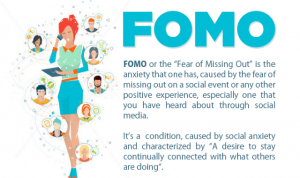
Tons and tons of content are being shared every day on social media, and so, if we don’t access it regularly, we might be missing out on something important.
And FOMO is a real human psychology phenomenon which all of us humans have. We just have it differently much.
The fear of missing out gets us to do things so that we don’t miss out on anything, and are thus left behind. This can lead to an overuse of social media in order to ensure that we’re updated with what everyone else is doing.
This can also risk creating anxiety, as it might feel like everyone is ”having fun without me” or ”except me”.
9. Sensitive information is leaked
Among the social media problems, this is a major one, which has caused plenty of problems through the history of social media.
The information shared on social media is available for the world to see, and it is also never deleted nor forgotten, as mentioned earlier.
There are a number of different ways in which sensitive information can be leaked, and the first step is being aware of what you are sharing on social media.
10. Sexting
With the instant and easy communication of social media, this social media problem is one that has increased over the years. This includes sexualized text communication, also known as sexting.
The includes sending sexually explicit messages or suggestive images.
There are lots of ways this can play out, but a danger is if you are sending it, and then it is spread on social media and across the internet. And remember, once something is uploaded to social media or the internet, it is almost impossible to get rid of.
As talked about earlier, this is a type of digital footprint which can be tremendously harmful to you in a number of different ways. This can include everything from embarrassment to harassment, to humiliation.
Moreover, it can also have a negative effect if you are looking for jobs and then the images are found. In fact, a survey found that 19% of females (aged 13–19 years) and 32% of women (aged 20–26 years) had sent nude or semi-nude pictures.
Moreover, sexting can also have legal consequences, as it is a crime, according to The Protection of Children Against Sexual Exploitation Act prohibits to send images of that nature to minutes.
11. Legal issues
Social media comes with a large set of potential legal issues which often are neglected, often due to ignorance.
More and more brands that use social media in marketing have started developing social media policies and similar which helps them stay aligned with the laws, but also remain aligned with their brand’s values and protect themselves from any legal issues.
There are a number of examples of brands that have been legally affected by things they have done on social media, such as not disclosing paid advertisements, including much more.
The first step to staying in the clear is obviously to know about the social media problems and legal issues. Then, you should develop a social media usage policy for your brand, which ensures that you’re not doing anything inappropriate.
In fact, the CEO of Whole Foods was taken to task for a series of messages on social media where he was talking negatively about his competitor Wild Oats.
12. Using social media during work
With social media addiction and the fear of missing out, frequent usage of social media comes as a result.
People want to stay updated often and frequently, and in many cases, this might include using social media during work.
As an employer and a brand, this is quite a hard thing to deal with, as it is easy robe discreet with your social media usage. But using social media during work hours is also a risk for the user, as it can be a huge time thief. All of a sudden, you’ve spent an hour scrolling through your feed, without having done anything productive which you’re expected to do.
13. There’s a lot of noise
The social media problems when it comes to using it as a marketing tool are quite a few, but in those cases, it’s most often about risks instead.
A problem, however, is that there’s a lot of noise on social media.
More content than ever is being shared on social media, and accordingly, it is getting increasingly difficult to cut through the nouse.
As a result, the question of how you cut through the noise on social media is being asked more frequently, and luckily, there are tactics and approaches you can take to do just that.
14. Copyright
Copyright infringement and Unauthorized Use of Copyright-Protected Works is a major problem on social media, at least for the owners and creators of the content.
With social media, there are often misconceptions that you can share anything you want, and that it is the wild west and a lawless society. But the truth is that the Copyright law includes content shared on social media, too. This includes all types of content, including text, videos, music, photographs, illustrations, and more.
Due to the easy access of content on social media, stealing other people’s work is becoming increasingly popular. But the thing is, many people have no idea that you aren’t allowed to do it.
Now, many people give credit to the owner of the piece of content when they share it on social media, but according to the copyright law, that’s not enough. Sure, most people will be more than happy to have you share their content as long as you credit them, but the copyright law says that you need permission, and if you’ve just taken it and included the credit, that criteria aren’t fulfilled.
Therefore, before you take something from someone on social media, make sure you have the permission from the owner to use it.
The best is obviously to create your very own pieces of content, but that’s not possible all the time for various reasons, plus, the statistics have proven that user-generated content is tremendously effective and powerful in marketing.
15. Obsession with likes and comments
More and more people have started comparing themselves with others on social media, and this can lead to an over obsession with likes and comments.
We all use social media for different reasons, but some people are using it to boost their self-esteem by sharing photos of themselves.
Now, there’s absolutely nothing wrong with that, but what can happen is that the likes and comments become almost like the only validation of their looks.
It’s not completely uncommon that people upload a picture and then refresh their notifications over and over in order to see if any new people have liked the post.
Due to the obsession with likes and comments for some people, it can certainly have mixed effects. If a post receives lots of likes and comments, it boosts self-esteem and makes them happy, but if it’s the opposite, it can in worst cases lead to depression.
Sure, receiving likes is always nice as you feel appreciated, but the truth is that it is very short-term happiness. This instant gratification can also, in turn, lead to social media addiction and an unhealthy usage of social media.
16. Endorsements
Now, don’t get me wrong, endorsements on social media are no problem, it’s the way they’re conducted sometimes that the law has opinions on.
A problem that both brands and influencers have faced as the popularity of influencer marketing has increased is that endorsements on social media need to be fully disclosed.
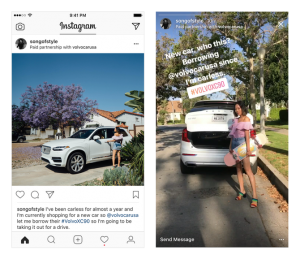
In fact, not too long ago, the FTC sent messages to a number of top influencers who hadn’t disclosed that the promotion was a partnership between them and the brand.
The FTC says that if you receive compensation in exchange for your promotion, you need to disclose it in the promotion you’re making. This does not only include monetary compensation but also an exchange of services or products.
This is something that both you as a brand and you as an influencer need to think about, as it can otherwise have negative legal consequences.
17. Social media can lead to multitasking and becoming unproductive
It’s not unlikely that you’re multitasking right now.
Research has found that we aren’t able to use our brain to its full potential if we are multi-tasking, and if you’re a person who uses social media while doing other things, chances are what you’re doing won’t be done in the best possible way.
18. Fake Identities
Among the social media problems, this is one of the most common ones.
There are a number of problems that come with fake identities on social media, but one of the most discussed is dating and chatting with strangers online, where people often have completely different appearances on their social media pictures compared to real life. Moreover, they might even have a completely different name.
But fake identities stretch so much further than that on social media, and this is why it’s crucial that you know that everything and everyone is far from who they are, and what they are meant to resemble.
People use fake identities on social media for a number of reasons, but it is hard to say a common reason. An explanation, however, is that creating fake identities is incredibly easy on social media.
19. It’s incredibly time-consuming
Chances are, you’ve gone to social media, only to find yourself having spent an hour just scrolling posts.
There are billions of pieces of content on social media and billions of people to talk about, and so, running out of things to do is seldom an issue.
With social media addiction, people will spend an immense time on social media, without really realizing it.
A study found that in 2017, daily social media usage of global internet users amounted to 135 minutes per day, up from 126 daily minutes in the previous year.
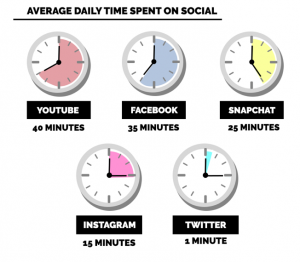
Now, that doesn’t necessarily have to be negative, but when your social media usage prevents you from doing other things that are more important, it’s important to review your current situation on social media.
To better have an idea of how long you’re using social media daily, time your usage. That way, you’ll know exactly how much time you’re spending on social media, and you’ll be able to consider what you can do instead and if you should be doing something else instead.
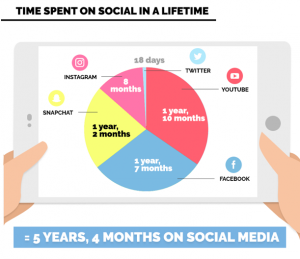
20. Decreases face-to-face interactions
Among the social media problems that exist, there has been quite a lot of debate about this topic. But remember, there are always two sides to the same coin.
Some people argue that we become more social with social media and other people argue that while that may be true, in terms of the number of conversations we have per day, it eliminates real-life face-to-face interaction.
Now, at the same time, social media has given people who have no friends and who have been outsiders to tie connections and talk to people online which is something very positive.
What social media has done is it has enabled and made many people shift their communication partly, where now, they’re talking more to people online than they did previously.
Since people tend to lash out more on social media, since they can feel like they can hide behind their computer screens, people argue that this shift that is taking place is something negative.
21. Social media promotes procrastination
Now, very seldom, you can blame something else for your own decisions, but it is said that social media promotes procrastination. There’s another problem with this, and that is that a lot of the work and things you do is done online, which is only a click away from social media. It’s easy to get carried away and have spent more time than intended on social media, as well as being constantly distracted and disrupted by it.
22. Does more social media friends mean more friends?
This is a question that has been wildly debated.
But a study found that just because we have more social media friends doesn’t mean that we get a better social life.
And what’s most important is that in order to build true, long-lasting, and memorable relationships, it demands real-life face-to-face interactions in order to keep these relationships.
In other words, while it might feel like you have a bunch of friends, you might feel incredibly lonely, just because all of those friends are found on social media, not in real life.
23. Removes privacy
Among the social media problems that exist, this is among the most-frequent mentioned ones.
The internet and social media have made it possible to find information about people in a heartbeat, and even if you don’t want to be on the internet, you’ll be. While the sense of hiding behind a screen can feel comforting, really, we have never been as exposed as we are today. Crazy, right?
This is a reason to consider what you should share on social media and what you shouldn’t share.
How much information do you want there to be about you on social media, and how much already exist?
24. Social media is addictive
It’s no news that social media is addictive, and this partly depends on the fear of missing out, but it can also depend on the fact that you have a need for validation through likes and comments
There are several factors that are at play here, and the factors can vary from person to person.
While there have been debates whether or not social media addiction is real, there is proof that it does exist. In fact, a study presented that there were lots of similarities in addiction with the effects social media can have on people. This includes things like neglect of personal life, mental preoccupation, escapism, and more.
25. Social media can trigger sadness
Studies have been made which have looked at the correlation between happiness and social media, and a study found that the most we use it, the less happy we tend to be.
The study found that more social media usage leads to less moment-to-moment happiness and less life satisfaction.
26. Makes us compare our lives
This is a huge one among the social media problems.
Here’s why:
Humans tend to compare themselves to other people.
In fact, we tend to compare everything.
But more importantly, we compare our lives with other people’s lives, and if you look on social media, the majority of posts shared there are posts that without actually saying it, says ”my life is so amazing”, ”my life is perfect” and so on.
But the truth is that social media enables us to edit, and tweak our images, to only share the perfect moments of our lives. This often leads us to believe that everyone else’s lives are perfect, while in reality, you only see a small glimpse of what their lives are really like.
This is a huge problem that can cause a lot of depression and despair.
We go to social media just to see that other people are living their dream life, traveling the world, and so on. And the vast majority of times, we aren’t positively affected by it. Instead, we start comparing there lives with our own. And a common result of this for many is that they get unsatisfied with their own lives. Maybe even feel like failures.
27. Proper grammar is forgotten
Very few people pay attention to their grammar and spelling on social media. If you go to social media, you’ll find tons of spelling errors, grammatical errors, and lots of social media slang terms.
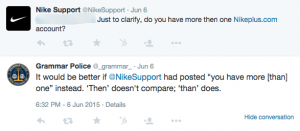
Now, there are two sides of this ”issue” and whether or not this is a real problem, but many people argue that it is, because the grammar being used on social media often infect other things, and places that we also write on, thus resulting in a less rich language and people not learning how to write properly.
28. Jealousy
Jealousy and comparison are two social media problems that are very much integrated into each other.
Because while comparing yourself with people on social media might mean depression to some, it might lead to anger and jealousy to others.
In fact, you’ve probably seen numerous posts on social media which have sparked jealousy in you, whether it be someone who is on their dream vacation or someone who has bought their dream car.
When this happens, social media will instead have a negative effect on us, rather than a positive one.
29. There’s a misconception that social media will help solve our problems
The social media problems tend to make us return to social media. And this is something that goes for a lot of unhealthy things.
Unhealthy habits and circles are often continued through people returning to the things that are harming them and that have negative effects on them.
If social media is doing damage to you, it won’t help to return to it. And this is a problem since people think that it will solve their problems.
30. Shorter attention spans
With endless amounts of content being shared on social media, our timespans have decreased at a fast pace.
In fact, we humans have a shorter attention span than goldfish.
And this is something that social media is thought to have contributed to.
31. Limiting thoughts
Social media is a place where you keep it short and concise, almost like a universal Twitter.
Since people have short attention spans, we need to keep it short and concise, because otherwise, people won’t consume the content we create.
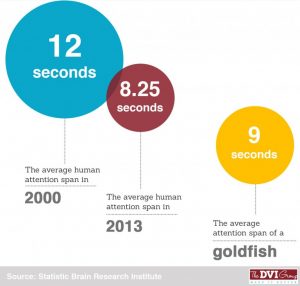
We cannot, therefore, express ourselves fully, use painting and rich words. In other words, we are limiting our thoughts greatly.
32. Social media glamorizes drug and alcohol use
You’re probably no stranger to this, because if you log on to social media, it won’t take long until you see drugs and alcohol.
And this isn’t just assumptions and guesses, because a study found that 70% of teenagers ages 12 to 17 use social media, and use it daily are five times more likely to use tobacco, three times more likely to use alcohol, and twice as likely to use marijuana.
In addition to this, 40% reported that they had seen people under the influence on social media,
33. It prevents us from spending quality time with each other
If you’ve been in a room of people, almost always, you see one or two sitting with their phones scrolling social media. Sometimes that number is considerably higher.
Social media works like a constant distraction that keeps us from being in the now and spending quality time with people.
If two friends meet up, it’s not uncommon that their interaction is focused on their phones.
Of course, there are two sides to this that argue that social media becomes a tool that brings us closer to each other.
34. It prevents us to live here and now
If there’s something that many people can agree on among the social media problems, it is that social media prevents us to live in the moment.
When people are at a concert, they live stream on Instagram or take lots of pictures so they can share with their friends that they are there and having a great time.
When we do something fun, we feel the urge to share it with our friends, and take plenty of pictures so we can upload the very best.
Social media might result in all-out focus going into our device and social media, rather than just soaking in the moment.
Now, with all of these social media presented, it might seem like the last thing you want to do is use it. This is obviously not true, and social media is certainly not the bad guy in this drama. It is the way we use it.
Because the truth is, social media can be a wonderful thing, in so many ways.
It allows us to connect with people from all over the world in a heartbeat – something we could only dream of doing not too long ago. It is able to inspire us, teach us, and educate us, and stay connected with the people who mean the most to us.
It allows us to tie new contacts with people we’ve never met, and build new relationships which lead to great things. I know I have met a ton of people who I’d never met if it wouldn’t be for social media, and I’ve come to build great relationships with them.
More than 2.46 billion people are using social media, and obviously, every single social media user isn’t facing all of these social media problems listed. In fact, many use social media the way it was intended too and have their lives become positively affected by it, rather than being negatively impacted.
Conclusion
There are always two sides to the same coin, and that is something we shouldn’t forget. If you use social media in a positive way, positive things will come. If you use it in a negative way, negative things will come. Of course, social media problems can happen even if you are using it the right way, but by being aware of the risks and dangers that exist, you minimize the risk of being affected by them. It’s just like the principle of not getting into a stranger’s car. Something bad won’t necessarily happen, but it can, and being aware of the risk is crucial.
I am a great believer in the fact that social media is something that is highly positive for our society because there’s so much proof out there. I am, however, aware of the social media problems that come with it, but I also believe that the positives outweigh the negatives, plus, the way you use it is everything.



Who creatd this article?
Thank you for pointing out a number of issues from using social media. I am presently looking at cyberbullying and the destructive nature of allowing posts linking to far right sites on Facebook and Twitter,. The murder of Jo Cox was linked to a far right wing site. During this Pandemic we are not socialising the same way we used to and pent up emotions are coming out in posts. Keyboard warriors! with nothing better to do than stir up unrest telling untruths and liable seem to be rife.
Why do we do this, the lack of face to face interaction lies at the bottom of these actions. Large n design study taking into consideration personality and Covid anxiety test. Should be very informative once the numbers are crunched.
Thank you for sharing your thoughts! Glad we could help!
Kind regards